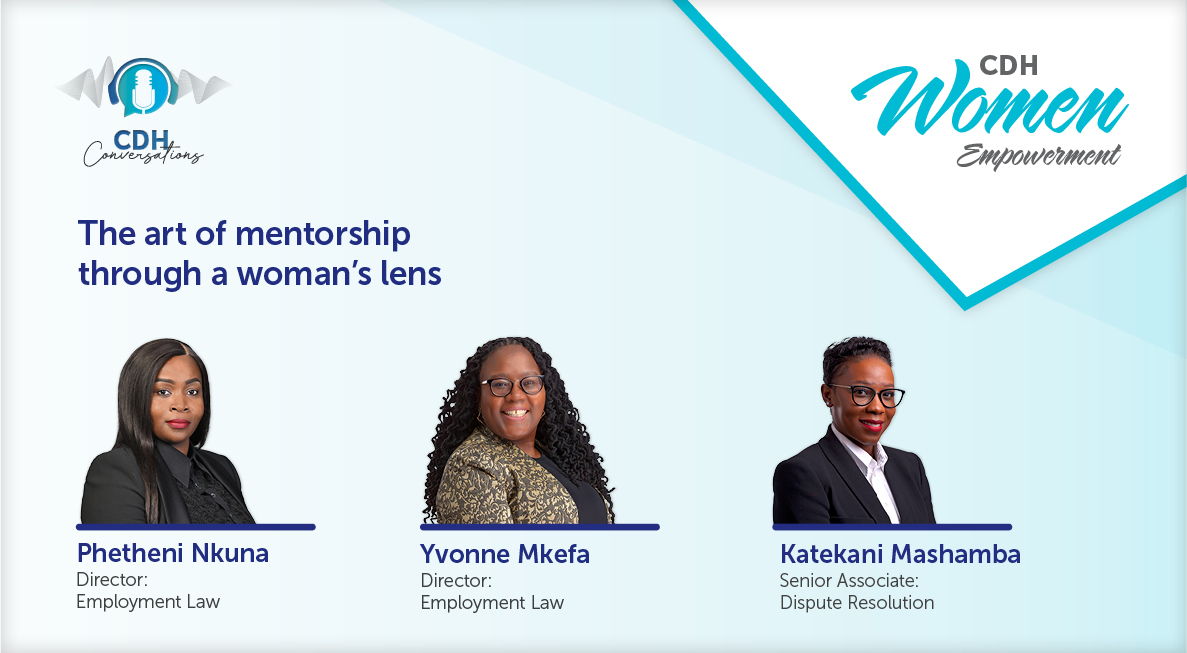Default judgment in the Tax Court – can the lockdown justify SARS’ delay?
At a glance
- The case involved a dispute between XYZ (Pty) Ltd and SARS regarding tax assessments for multiple years.
- The Tax Court granted default judgment in favor of XYZ for the 2005 to 2012 years of assessment due to SARS' failure to comply with court orders.
- However, the court dismissed XYZ's application for default judgment for the 2013 and 2014 years of assessment, citing SARS' explanation of the delay due to the COVID-19 pandemic and the lack of arguments on the merits of the case. A punitive cost order was granted against SARS for its dilatory approach.
Facts
The facts and litigious history of this matter are complicated and, as was astutely described by the court, they are “long, tortuous and extremely unfortunate”.
In August 2000, the applicant in this matter (Applicant) and the Minister of Correctional Services concluded a concession contract in terms of which the Applicant was contracted to design, construct and operate a correctional facility. The term of the agreement was 25 years, at the expiration of which the correctional facility was to be handed over to the state.
The first of many disputes between the Applicant and SARS arose in respect of the Applicant’s tax return for the 2002 year of assessment, which dispute was ultimately decided by the Supreme Court of Appeal in 2011. The second dispute arose in relation to the assessments that were raised by SARS in 2015 in respect of the Applicant’s 2005 to 2012 years of assessment. Whilst this dispute proceeded, SARS issued assessments in respect of the Applicant’s 2013 and 2014 years of assessment, which assessments were raised on identical grounds as those in respect of the prior years of assessment.
The identical letters of objection lodged by the Applicant in respect of each year of assessment contended that the amounts “added back” by SARS constituted income of a capital nature rather than of a revenue nature, and as such should not be included in the taxable income of the Applicant. The Applicant also objected against SARS’ disallowance and reversal of an exemption that was previously granted to the Applicant.
After the disallowance of its objections, the Applicant lodged an appeal in respect of the assessments for the 2005 to 2012 years of assessment on 31 January 2017. Notwithstanding various delays, it was agreed that SARS would file its opposing statement by 17 June 2017. After failing to meet this deadline, SARS was granted an extension for the filing of the opposing statement to 14 July 2017. This deadline was also not complied with by SARS.
In response, the Applicant gave notice that, unless SARS filed its opposing statement within 15 days, the Applicant would apply for a default order against SARS, in terms of which the original assessments issued by SARS would be revised and reduced in accordance with the terms of the Applicant’s notice of appeal. SARS did not file its opposing statement until approximately a month after the 15 days’ deadline and also did not file an answering affidavit in respect of the Applicant’s application for a default order by the prescribed date. As such, the Applicant requested that a date for the hearing of the application by default be allocated.
The Rule 56 application was heard by the Tax Court, which concluded that SARS had “made itself guilty of an egregious breach of the Tax Rules”, as a result of which default judgment was granted in favour of the Applicant in respect of the 2005 to 2012 years of assessment.
The dispute between the Applicant and SARS in respect of the Applicant’s 2013 and 2014 years of assessment then came before the Tax Court, which court dismissed the application on the grounds that the Applicant’s objections were invalid. This decision of the Tax Court was appealed to the Full Bench of the High Court in January 2020, which court gave an order in the following terms:
- SARS would come to a decision regarding the allowance or disallowance of the Applicant’s objections and would provide the Applicant with the basis of the said decision within 60 days of the court order; and
- In the event that SARS failed to make the decision and provide the grounds for that decision within 60 days, the Applicant would be entitled to make an application in terms of Rule 56(2)(b) of the Tax Court Rules for a final order that the Tax Court deems appropriate.
SARS failed to notify the Applicant of its decision to allow or disallow the Applicant’s objection within 60 days of the court order. As such, the Applicant (on the strength of the order of the High Court) approached the Tax Court seeking to invoke Rule 56 of the Tax Court Rules in support of its application for default judgment.
Judgment
It was the Applicant’s contention that SARS had failed to comply with the order of the High Court as it had communicated its decision, on whether or not the Applicant’s objection would be allowed, more than two months out of time. As a result, the Applicant submitted that the Tax Court was empowered to grant default judgment in favour of the Applicant in terms of Rule 56 of the Tax Court Rules and section 129(2)(b) of the TAA.
Rule 56 of the Tax Court Rules provides that if a party to a proceeding fails to comply with a prescribed time period or obligation, the other party may deliver a notice to the defaulting party informing them of their intention to apply for a final order in terms of section 129(2) of the TAA. The notice must state that the defaulting party has 15 days to remedy the default. To the extent that the default is not remedied within the 15-day period, the aggrieved party may apply to the Tax Court, which is empowered:
- in the absence of good cause shown by the defaulting party for the default in issue, to make an order in terms of section 129(2) of the TAA; or
- to make an order compelling the defaulting party to comply with the obligation, failing which it can make an order in terms of section 129(2) without further notice to the defaulting party.
Section 129(2) of the TAA provides that, in the case of an assessment or ‘decision’ under appeal, or an application in a procedural matter referred to in section 117(3), the Tax Court may:
- confirm the assessment or ‘decision’;
- order the assessment or ‘decision’ to be altered; or
- refer the assessment back to SARS for further examination and assessment.
In support of its case, the Applicant addressed SARS’ reasons for defaulting on the order of the High Court. It was submitted that the said reasons were entirely unsatisfactory, as a result of which the Tax Court would be justified in granting an order in terms of section 129(2) on the basis that SARS was unable to show good cause for its default.
In its opposition of the application, SARS raised the issue of the administrative nature of an assessment issued by it and argued that until such time as the assessment has been set aside, it is a valid and binding decision. The Tax Court inferred that SARS was relying on the principles laid out in the Supreme Court of Appeal (SCA) judgment of Oudekraal Estates (Pty) Ltd v City of Cape Town 2004 (6) SA 222 SCA (Oudekraal Estates case), which were summarised by the Tax Court as follows:
- administrative action that is invalid can give rise to consequences that must be regarded as lawful until such time as the validity of that administrative action has been tested in appropriate legal proceedings before a court; and
- allegedly unlawful administrative action can only be challenged in properly constituted proceedings before a court and until that happens, in order to adhere to the principle of the rule of law, the decision must stand.
The Tax Court ruled that the application brought by the Applicant (although unconventional) constituted the type of appropriate legal proceedings before a court that was envisaged by the SCA in the Oudekraal Estates case when determining the necessary forum for the challenge of unlawful administrative action. As such, it was held that the proceedings before the Tax Court were capable of setting aside an invalid administrative act taken by SARS, which would include the decision by SARS to disallow the Applicant’s objection.
In this case, the legal basis in terms of which SARS’ decision was to be set aside was Rule 56 of the Tax Court Rules, which provides the Tax Court with a discretion in determining whether an order in terms of section 129(2) of the TAA should be granted. However, in coming to its decision, the Tax Court found that it could not exercise its discretion in favour of the Applicant for two reasons.
Firstly, SARS had contended that one of the reasons for its delay in complying with the High Court’s order was the negative impact that the national lockdown, caused by the COVID-19 pandemic, had on SARS’ administration and operations. The Tax Court conceded that this explanation given by SARS for its default constituted “good cause” for the delays that it had caused.
Second, neither of the parties before the Tax Court presented arguments pertaining to the merits of the case, as a result of which the Court was unable to make a pronouncement on the success or failure of the Applicant’s objection to SARS’ assessments for the 2013 and 2014 years of assessment.
In the result, the Court dismissed the application for the default order that was sought by the Applicant. However, in taking cognisance of SARS’ “dilatory and utterly disrespectful” approach to the dispute proceedings between it and the Applicant, the court granted a punitive cost order against SARS.
Comment
Rule 56 of the Tax Court Rules makes provision for a default order to be granted against either SARS or a taxpayer in the event that the time periods and obligations imposed by the TAA are not adhered to. This type of relief may prove very beneficial to a taxpayer, provided that they can prove that the failure by SARS to comply with its obligations cannot be justified. In this case, it is likely that the Applicant would have been granted the default order had the COVID-19 pandemic not had such a significant impact on the proper functioning of the South African economy as a whole.
However, it is worth noting that when a default order is denied, a taxpayer is not without further remedies as the taxpayer is still entitled to approach the Tax Court to have the merits of its case properly ventilated. To the extent that the taxpayer’s arguments have merit, it may be successful in the Tax Court and, as pointed out by the court in this case, the taxpayer may be entitled to a punitive cost order.
Interestingly, this case appears to be one of the first Tax Court cases to expressly deal with the collateral challenge issue. A collateral challenge may be used to test the validity of an administrative act and “will generally arise where the subject is sought to be coerced by a public authority into compliance with an unlawful administrative act” (para 32 of the Oudekraal Estates case).
The information and material published on this website is provided for general purposes only and does not constitute legal advice. We make every effort to ensure that the content is updated regularly and to offer the most current and accurate information. Please consult one of our lawyers on any specific legal problem or matter. We accept no responsibility for any loss or damage, whether direct or consequential, which may arise from reliance on the information contained in these pages. Please refer to our full terms and conditions. Copyright © 2026 Cliffe Dekker Hofmeyr. All rights reserved. For permission to reproduce an article or publication, please contact us cliffedekkerhofmeyr@cdhlegal.com.
Subscribe
We support our clients’ strategic and operational needs by offering innovative, integrated and high quality thought leadership. To stay up to date on the latest legal developments that may potentially impact your business, subscribe to our alerts, seminar and webinar invitations.
Subscribe




